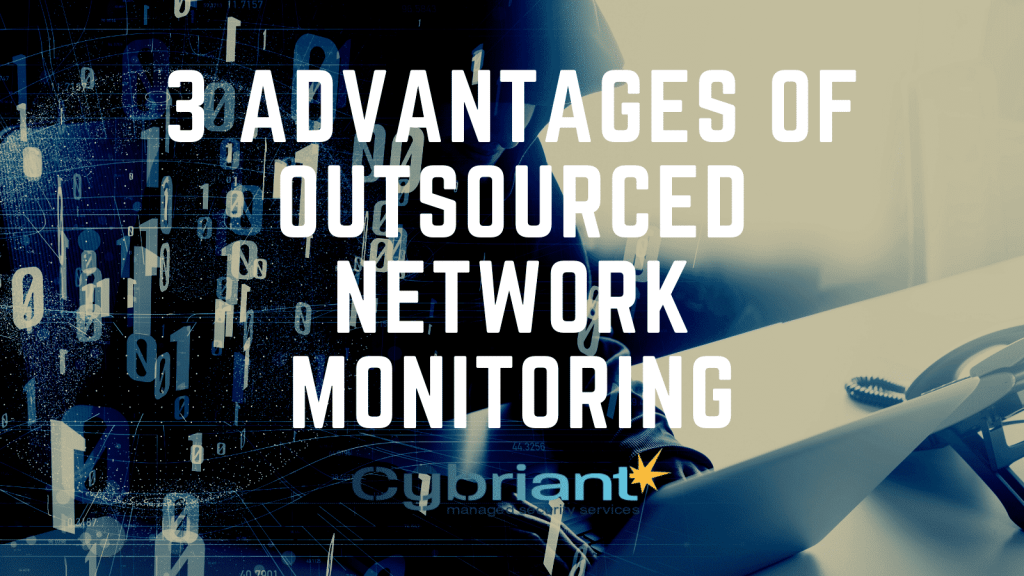There are multiple advantages of outsourced networking monitoring. No matter your organization’s size, it’s vitally important to protect the data that can be accessed inside and outside of the perimeter.
Ideally, the focus of business management should be its bottom line. The more time businesses spend monitoring their own network infrastructures, the less time they have for managing employees, revamping policies, and researching profit gain strategies.
Aside from time, there is a stress factor that must be considered–business owners or managers who take on the task of monitoring their own network will generally be more stressed, although it’s an avoidable problem. When a business’s income flow depends on the integrity of its computer network, then it can count on dividing its time and energy between profit gain and maintenance of the computers.
Outsourced proactive monitoring is a trend utilized by several businesses to mitigate this problem. Besides saving time and stress, there are other important facets of computer networks that benefit from the outsourcing of proactive monitoring.
Quality Of Service
This refers to the status of network data flow–whether data is transmitting efficiently or not. Optimizing the flow of network data can add up to an abundance of saved time.
Assuming there is already an efficient setup of the physical network, the software built into the network routers, switches, and computers must be configured to allow for the optimization of apps and programs most relevant to a company’s activities.
Fluctuations of data flow within a company’s internal network can be detected and confidently compensated for remotely by trained technicians.
Monitoring Malicious Activity
Businesses using computer networks cannot get around the necessity of efficient security. With the monetization of stolen data on the Deep Web and the glamour pushed by the film industry and hacker culture of successfully hacking computer systems, it’s more important than ever to mitigate risk.
Mitigating security risks inherent in computers and networks is not only about installing antivirus software and setting up push alerts, however–it also includes the proper configuration of routers and switches and can also involve a revamp of the actual physical network setup.
Whatever the case, once the fundamental security measures are configured, remote monitoring of certain metrics can begin and businesses can rest assured knowing they are under professional care. Monitoring in a proactive sense can also include memos pushed by the professionals so that employees are familiar with trending or up-and-coming security threats.
Controlled Software Updates
Updating software installed on computer systems goes hand-in-hand with security and quality of service. It is also a task that can be done remotely and should be done proactively. Software is revamped continually by its manufacturers after glitches are found in the original releases.
Security loopholes are also discovered which the manufacturer will create patches for. These software updates are made available on manufacturer websites or can be configured for automated installation within the programs they are made for.
However, timing the installation of these updates is critical. It generally requires much of the bandwidth (available data speed) of the company’s internet and internal network. The installation should be prioritized in accordance with the interests of the company while weighing the risks of installing vs not installing. In general, it is a good idea to install updates, but updates have been known to bring entire networks down and out of service due to unforeseen glitches in them.
Perhaps manufacturers did not thoroughly test the updates, or another technical anomaly occurred. Whatever the case, service technicians trained in proactive monitoring will take on the task of weighing the risks and installing in a manner where there is minimal if any negative consequence.
Conclusion
The benefits of outsourced management of computers and networks are bountiful. Not only does it close the knowledge gap so that businesses know they are receiving proper care, but it lowers business management stress to a tolerable level. Furthermore, when data residing on business computers is mission-critical, managed IT service providers even have methods and resources for preservation thereof. There is much to be gained.
CybriantXDR
The number one way to mitigate the damage from any attack on your environment is to prevent it from happening in the first place.
It’s vital to protect your organization from all points of entry and ensure your organization has visibility of all the points of entry that are being accessed by authorized personnel.
CybriantXDR combines the latest technology utilizing machine learning and artificial intelligence with experienced oversight to identify and terminate malicious software before it can execute.



